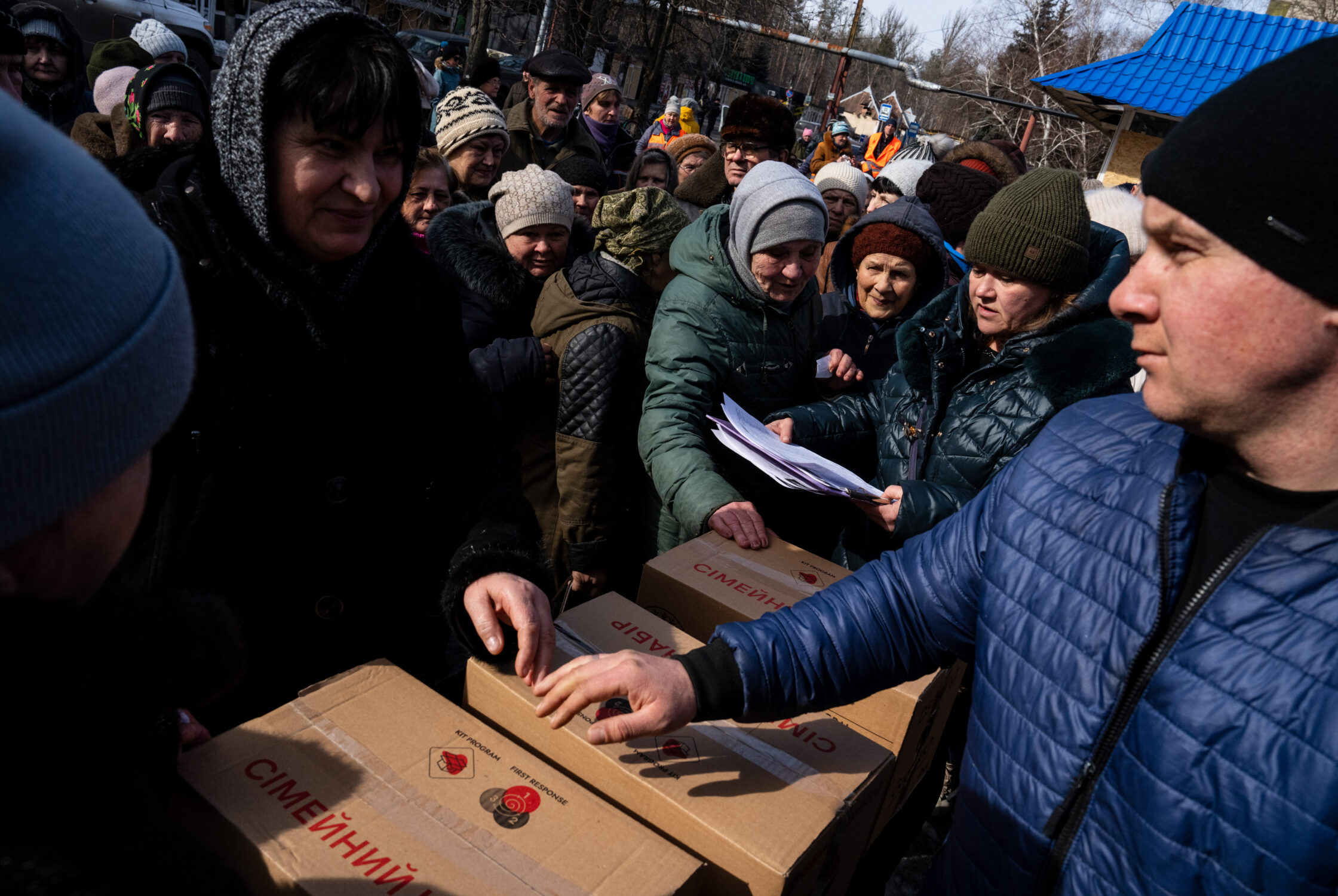Letter: Localization of Humanitarian Aid in Ukraine

The Honorable Anthony J. Blinken
Secretary of State
U.S. Department of State
2201 C Street NW
Washington D.C. 20520
Samantha Power
Administrator
U.S. Agency for International Development
1300 Pennsylvania Ave NW
Washington D.C. 20523
April 4, 2023
Dear Secretary Blinken and Administrator Power,
We the 27 undersigned humanitarian organizations reach out to you at this critical juncture in the humanitarian response across Ukraine to raise concerns over the slow progress by the United States and other donors in localizing aid. We understand the complexities of this policy shift and applaud the important commitments by the United States to a worldwide localization approach. This letter suggests concrete steps to begin putting these commitments into practice in U.S. humanitarian aid to Ukraine.
While the United States and other donors have been extremely generous to Ukrainians in need, less than 1 percent of the $3.9 billion in overall humanitarian contributions tracked by the UN last year were transferred directly to Local/National Non-Governmental Organizations (L/NNGOs). One result is an overly costly and circuitous response where many Ukrainian organizations are stuck as sub-grantees, severely under-represented in coordination structures and dependent on the priorities and decision-making of international agencies.
This is particularly unfortunate because Ukraine’s civil society has managed an impressive humanitarian response to the displacement and destruction incurred since the full-scale Russian offensive a year ago. Ukrainian organizations and volunteer networks are still the primary actors delivering aid to their fellow citizens, especially in the most dangerous and hard-to-reach areas of the country. Given the possibility of expanded hostilities in the coming weeks, it seems likely that the heavy reliance on Ukrainian responders will only increase at a time when their own staff and volunteer networks are exhausted and financially strapped, despite substantial in-kind support from international agencies.
Now more than ever, we believe that delivering on the localization of humanitarian aid will be essential to significantly improving the response. We therefore recommend USAID and State/PRM pursue the following steps:
- Significantly increasing support for the Ukraine Humanitarian Fund (UHF) this year, contingent on the Fund enacting specific localization reforms. More U.S. contributions to the UHF, beyond the $20 million previously delivered by the U.S. government in 2022, offers the most immediate way to advance the localization of aid funding, since the UHF is presently the main vehicle directly funding L/NNGOs. However, the U.S. government should condition any expansion of funding on the UHF putting in place a range of localization reforms, including but not limited to equitable partnership and ethical hiring requirements with its grantees. These reforms would ensure that local organizations (including sub-grantees) receive fair compensation for their overhead costs and that international agencies do not distort the local labor market. The United States should also press the UHF to achieve a significant increase in the percentage of funding directed to L/NNGOs, up from the current 33 percent to at least 65 percent by the end of 2023.
- If the UHF fails to expeditiously expand funding to L/NNGOs and undertake localization reforms, consider investing in a new Country-Based Pool Fund designed to expand funding to L/NNGOs. Such a pooled fund could rely on INGOs as the financial pass-through and administrative foundation of the fund, but would function in its decision-making under the overall leadership of Ukrainian NGOs, thereby putting the latter in the driver’s seat when it comes to deciding priorities and budget allocations.
- Vigorously engage L/NNGOs and both set and track mandates to ensure localization happens. The U. S. government should begin to mandate that implementing partners: 1) commit to equitable partnership and ethical hiring requirements; 2) report/track progress on these guidelines; 3) ensure that wherever possible, UN agencies or INGOs that are implementing third-party monitoring or capacity strengthening programs partner with a L/NNGO in order to eventually transfer responsibility for the program to the Ukrainian organization; and 4) better publicize funding opportunities, partnership rights/principles, and opportunities for involvement in coordination structures, especially in local languages.
- Urge the UN’s Humanitarian Country Team (HCT) and the Cluster System, as well as the forthcoming NGO Platform, to significantly expand Ukrainian representation and leadership at all of their decision-making tables. While it is important to better integrate Ukrainians into international coordination systems, USAID and PRM should also support projects, partnerships, and investments that grow existing Ukrainian structures of humanitarian coordination while better connecting them to the internationally led ones.
Ukrainians are widely acknowledged to be delivering aid to their own citizens faster, more efficiently, and at less cost than international responders. If substantial reforms around localization are not activated soon, we are concerned that this impressive foundation will be weakened and a golden opportunity for improving the response will be lost. We will also lose the chance to create a strong precedent for change that can be leveraged around the world to the benefit of all of those in need.
Sincerely,
Angels of Salvation
Boyarka Community Foundation
CARE International
Caritas Zporizhzhia
Catholic Agency for Overseas Development
Christian Aid
Community Foundation Bari
Community Foundation of the City of Dubno Dobrobut
Community Foundation Ridnya
Fund for the Development of the Kakhov Community
Grytsiv Revival Association NGO
Helping to Leave
Kherson Community Foundation Zakhyst
Kryla Nadii
National Network of Local Philanthropy Development
NGO Foundation for Community Development
NGO Resource Center
NGO Ridnya
Norwegian Refugee Council
Oxfam
Princes-Benefactors Ostrozky Foundation
Refugees International
Revival of the Nation
Right to Protection
Ukrainian Child Rights Network
World Vision International – Ukraine
Zagoriy Foundation
CC
Assistant Secretary of State Julieta Valls Noyes
Assistant to the Administrator Sarah Charles
Cover Photo: Civilians receive humanitarian aid in the town of Sviatohirsk, Ukraine on Feb 24, 2023. Photo by Wolfgang Schwan/Anadolu Agency via Getty Images.